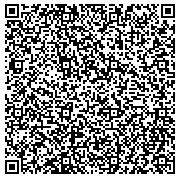From HVACs to Fireplaces
Danger Zones after a Flood
Floods affect hundreds of homes every year. It could be due to natural disasters such as hurricanes or preventable conditions such as leaking pipes. Regardless of the cause, the effects of flooding are not pleasant.
While we are advised to clean up the affected areas immediately after a flood has occurred, there are danger zones that not many of you know about. These are the areas that we will be focusing on today--- in order to ensure that your safety is safeguarded while you attempt to salvage areas of your home affected by a flood.
Danger Zones after a Flood
There are various danger zones that exist within the home and these include the:
- Fireplace
- HVAC unit
- Fridge
- Furnace
The HVAC unit is also not a safe zone. It’s recommended that you call a professional to inspect it after the flood to ensure that the burner units, gas connections, wiring and fans are all in order. Not many people are aware of this but a flood could make your fridge toxic so stay away from it and do not try to salvage the food items stored. We all know floods are filled with toxins and these could easily affect the food items you have stored. Having a professional inspection in areas, such as the fireplace, helps manage the damage that may have affected the masonry of the fireplace, the flue components and mortar.
Special Precautions During and After a Flood
When a flood occurs in your home, you need to act fast.
Below is a list of the special precautionary measures to take.
- Turn off the main electric supply
- Vacate the flooded areas of the home
- Service all electrical appliances, septic tanks and other fixtures before using them after the flood
- Have a professional home inspection after the flood
After the flood water has receded , all electrical and gas appliances need to be properly cleaned out. The entire structure also needs to be professionally inspected since there could be structural damages in areas-- such as the ceiling, chimney and the foundation as well. Most importantly, the structure and salvaged items need to be disinfected. Knowing these danger zones will definitely help you stay safe during a flood and in the after math of the flood as well.
| This article is composed by and offered as a public service by Jimmy K. Jimmy K is the Independent Owner and Operator of Emergency Response Restoration (http://www.emergencyresponserestoration.com/), 2665 N Atlantic Avenue, Daytona Beach, FL 32118 |
 |